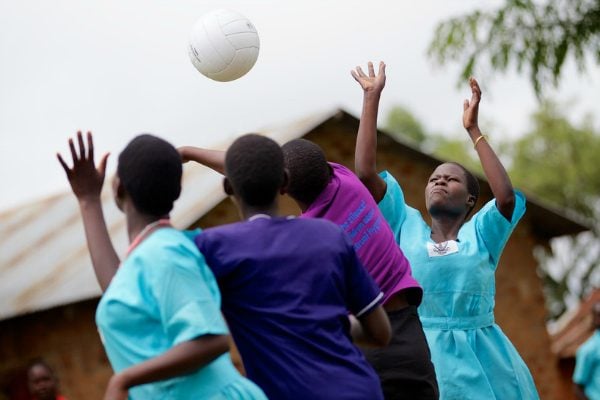
When I first met Christine, she defeated me on a makeshift netball court at her school in Uganda. At 27, any confidence I had in my netball skills were destroyed by this spirited 15-year-old and her barefoot teammates. It was humbling.
When I told Christine how great she was, I was shocked to hear that a few months earlier she had been unable to even think about playing. Her outlook was bleak; she was missing days of school. She was frightened, in pain and had no one to talk to.
Why? Because she had her period.
“I thought it was going to last forever,” Christine told me with sadness in her eyes. “The first time I got sick, I would just lie still, be quiet and sleep. I was in so much pain. I would just bathe and sleep.”
“I found a piece of carpet somewhere.”
For girls in Australia, getting our period for the first time is confronting. But for a girl in rural Uganda, it can be terrifying. Reproductive health is not discussed at school or at home – and they are often unaware of what is happening to their bodies. Plus, many girls don’t know about or have access to sanitary pads. Even if they do, they can rarely afford the cost.
Girls like Christine are vulnerable and left to guess how to manage their period – often resorting to old newspaper, banana leaves or old rags. Not only are girls left to deal with leaks and embarrassment; it’s unhygienic and can have debilitating health consequences.




























































































